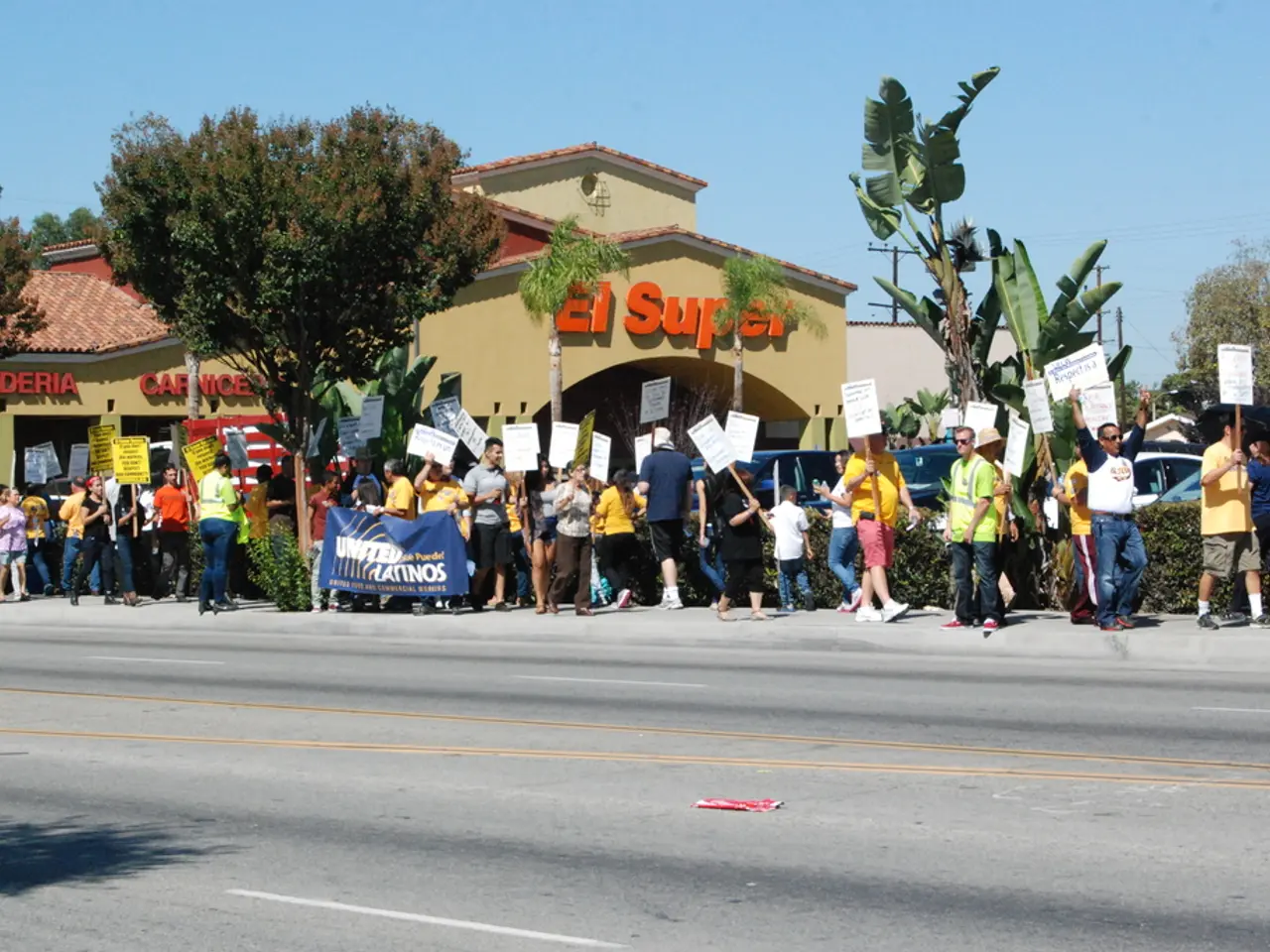Strategies for Executing Effective Social Manipulation in Political Campaigns
In the digital age, political campaigns are leveraging social engineering strategies to connect with voters on a deeper level. This approach, when executed ethically, can foster trust, create emotional connections, and shape public opinion in favour of a candidate or issue.
Modern campaigns effectively implement social engineering strategies by focusing on targeted social media engagement, influencer partnerships, data-driven personalization, and sophisticated messaging designed to resonate with voters' emotions and identities.
One key method is the utilisation of social media platforms such as Facebook, Twitter, Instagram, and YouTube for direct, personal communication with voters. This dialogue and community-building allows campaigns to market candidates, mobilise support for events and voting, and receive feedback on issues that matter most to voters [2][3].
Partnering with political influencers who have established trust within specific demographics is another effective strategy. These influencers can credibly relay campaign messages, broadening reach and engagement in communities that traditional advertising may miss [3].
Employing advanced data analysis and audience segmentation to craft personalised messages is also crucial. This precision marketing addresses voter concerns specifically, increasing the perceived relevance and effectiveness of campaign communications [4]. Incorporating AI tools can adapt these strategies in real time based on voter behaviour.
Creating sophisticated, emotionally resonant content is another critical component. This content appeals to identities and values, thereby enhancing persuasion [1]. Highly elaborate coordinated campaigns can even employ disguise and mimicry to infiltrate online communities and increase trust in messages.
Maintaining a consistent and regularly updated digital presence is also essential to avoid appearing sporadic or outdated, which can alienate digital-native voters [2].
However, it's important to recognise the ethical boundary. Some campaigns have misused social engineering through disinformation, automated bots, and fake accounts to manipulate public opinion deceitfully, which undermines democratic integrity [1][5]. Effective campaigns should focus on genuine engagement and transparency to foster trust and lasting voter relationships.
In summary, effective social engineering in modern political campaigns hinges on interactive, personalised, and credible digital communication strategies empowered by data analytics and meaningful influencer collaboration. This approach increases voter connection and engagement while navigating the complexity of online social dynamics.
For more information, please visit our website or call us at 91 9848321284.
References:
[1] Shapiro, C. (2018). The Dark Side of Social Engineering in Politics. Harvard Kennedy School. [2] Meraz, J. (2019). The New Politics of Social Media: How Digital Platforms are Reshaping Political Campaigns. Oxford University Press. [3] Davis, J. (2020). Influencer Marketing for Political Campaigns: A Comprehensive Guide. Campaigns & Elections. [4] Lazer, D., Baum, D., Benkler, Y., Berinsky, A., & Budak, A. (2018). The Weaponization of Social Media: How Political Campaigns and Actors Exploit Social Media to Influence Voters. Oxford Research Encyclopedia of Politics. [5] Zuckerman, E. (2019). Social Media and Fake News: A Synthesis of the Literature. Journal of Information Technology & Politics.
- Social media platforms like Facebook, Twitter, Instagram, and YouTube are utilized by political campaigns to engage with voters directly, foster conversations, and build communities, enhancing candidate marketing efforts and cultivating voter support.
- Collaborating with political influencers who have established trust within specific demographics can help campaigns broaden their reach and engage with communities that traditional advertising might miss, facilitating credible relay of campaign messages.
- Maintaining transparency by avoiding disinformation, automated bots, and fake accounts in social media communication is crucial in implementing ethical social engineering strategies, as it upholds democratic integrity and fosters enduring voter relationships.







